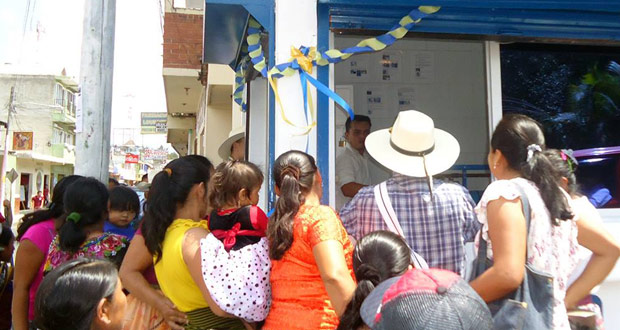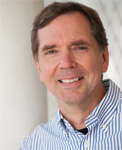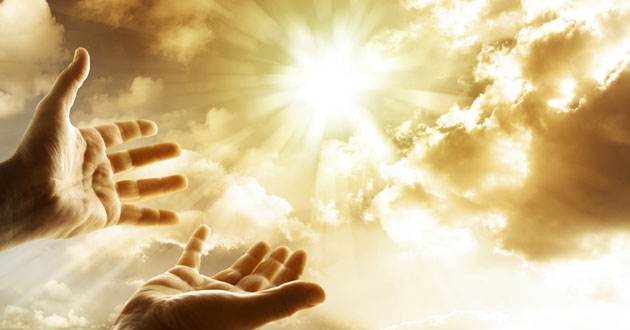Making a spiritual splash

There are lots of good reasons to go to church. For you it might be the sermons, the music, the community, the celebration of the sacraments, the participation in something believers have been doing for thousands of years, the children’s program, the sense of transcendence—of being part of something bigger than yourselves.
But what if the reason you went to church is that it saved your life?
I don’t mean figuratively.
I mean literally.
Recently I was in a little town called Chiquimulilla in southern Guatemala, almost to the El Salvador border. The church is growing like crazy, and is planting churches in even more rural areas. Other pastors are taking note, and are considering adopting similar methods.
What’s drawing people to this church?
Clean, inexpensive, life-giving water.
Like many regions in the world, the water in much of Guatemala is contaminated. Even the municipal water supply in many cities isn’t safe to drink, because of a lack of proper sanitation. Out in the harder-to-reach areas like Chiquimulilla, it’s even worse. The leading cause of death for children in the developing world is sickness due to diarrhea. More kids die of diarrhea-related diseases than of AIDS, malaria and measles combined, according to the Centers for Disease Control and Prevention. And it’s all because of contaminated water, unsafe sanitation and hygiene.
So people are left with two choices: they can boil the water, which is prohibitive because of the cost of fuel, or they can buy clean water from companies that take advantage of the scarcity and gouge the customers. For many people the choice is buying food or water. Not both.
But the local church is changing this.
It teamed up with a Denver organization called Healing Waters International, which has been putting water filtration systems in churches for more than 10 years. Healing Waters started out working with churches in the Dominican Republic, and is now in Haiti, throughout Central America and in parts of Africa. The success in the partnership is that people come to the church for clean, inexpensive water. Healing Waters installed 38 systems in 2013.
What’s different about the Chiquimulilla church is that, in addition to providing education in proper hygiene and safe health practices for the customers and parishioners, along with the affordable clean water, members of the church are taking water to areas that are even harder to reach. Some are even planting new churches in those areas.
But it starts with the water. And a vision from the pastor.
“Pastor Salomon came to us and said ‘Help me achieve what I think God is trying to do in my community,’” said Ed Anderson, CEO of Healing Waters. “He didn’t ask us for money. He asked us to participate in what he sensed God was already doing.”
The Healing Waters staff in Guatemala met with Pastor Salomon and saw that the church was ready to serve its community in significant ways.
“We made sure he understood that we weren’t interested in doing something with short-term solutions,” Anderson said. “The health of the people in his community is a long-term problem, and he made it clear that his church was committed to saving lives as well as saving souls.”
Now, on any given day of the week, people line up with their blue 5-gallon bottles, and receive water for 5 quetzal, or less than $1 U.S. The commercial water suppliers charge up to 18 Q, or more than $2 U.S. People line up at the church, at Pastor Salomon’s home, and at eight other locations in the community. Everyone knows where the water is coming from.
“This has transformed my church,” he told me. “It has given our people a way to reach others, to build relationships. The water is turning our people into evangelists.”
Ed Anderson says that the Chiquimulilla system, like all other Healing Waters systems, is designed to not only transform the church, but also the community. It’s a system that can provide safe, affordable drinking water for decades, that trains and equips people in the community to serve one another, that provides health and hygiene education—particularly for women and children, and that has a business model that is sustainable for the long term.
In John, chapter 4, Jesus says to the woman at the well, “Give me something to drink.” In Matthew 25 Jesus makes it clear that if you give thirsty people a drink, it’s the same as giving it to Jesus.
And then there’s Revelation 22 that says, in my paraphrase, “Come, everyone who is thirsty. Drink freely from the water of life.”
by Dean Nelson
Nelson directs the journalism program at Point Loma Nazarene University in San Diego. His book “God Hides in Plain Sight: Seeing the Sacred in a Chaotic World,” is published by Brazos Press.





